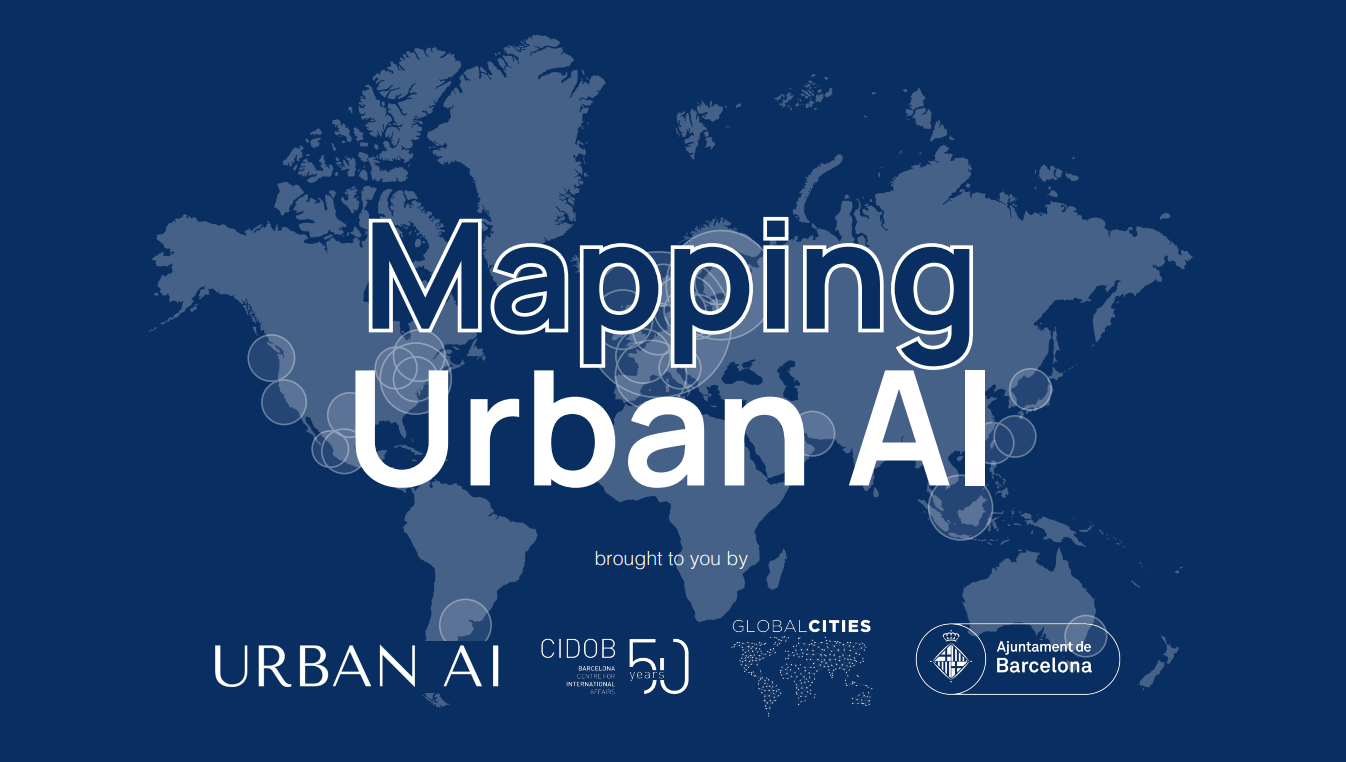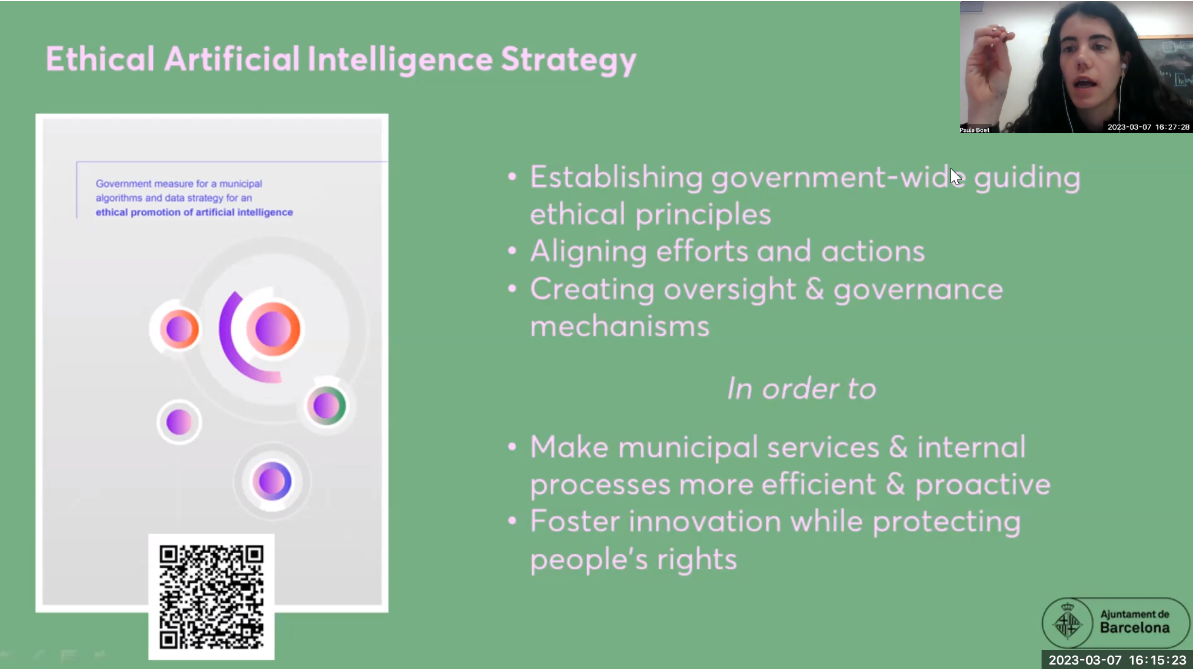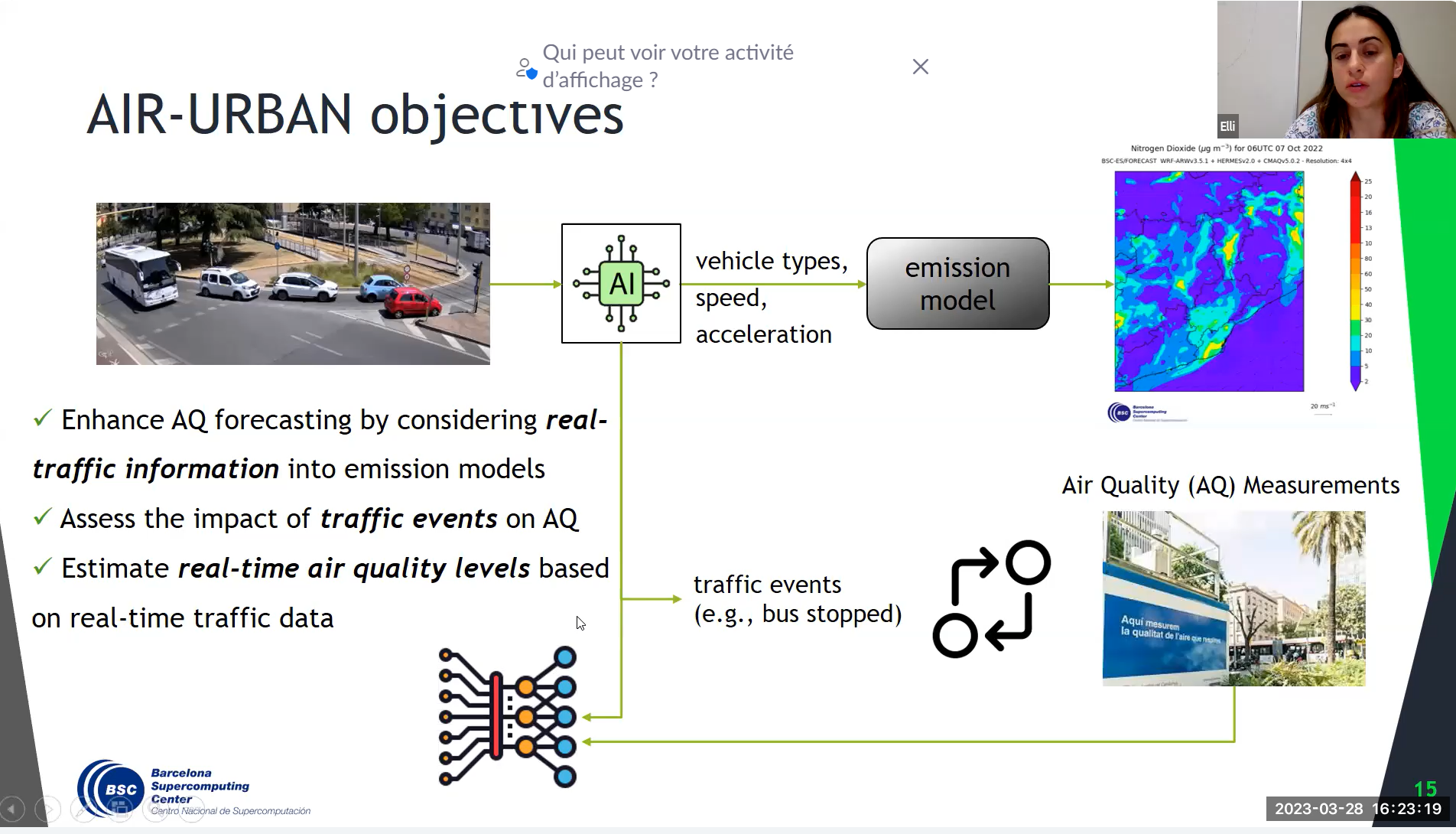
This webinar series, called Mapping Urban AI, aimed to highlight how cities design, use, and/or implement Urban Artificial Intelligence.
For a period of six weeks, we hosted representatives from global who showcased their specific use cases and policies on how they implement urban AI.
This project is a collaboration between Urban AI, CIDOB and The Global Observatory on Urban Artificial Intelligence.
Holistic Strategies for Urban AI
From specific projects to holistic strategies, what is the value of having an AI strategy? How can cities create overarching ethical frameworks to promote a rich and coherent development of urban AI? What are the key ingredients of successful AI strategies? How can cities govern AI? This session featured two pioneer cities with experience on the matter. With Paula Boet (Project Manager at Barcelona City Council) and Alex Foard (Executive Director, Research and Collaboration, NYC Office of Technology and Innovation).
AI for Urban Health
Can AI be used by cities to improve urban health? In this session we explored how the City of Buenos Aires used AI to better combat COVID 19.

Urban AI: Enabling Safe and Inclusive Cities in Africa
Africa is home to some of the fastest-growing cities in the world, and with this growth comes significant challenges in terms of housing, transportation, and access to essential services. At the same time, rapid advancements in AI technology are offering new possibilities for addressing these challenges and creating more just and equitable urban environments. This event aimed to explore the intersection of AI and urban planning in Africa, highlighting innovative strategies and solutions for leveraging AI to promote social equity and create more sustainable, liveable cities. With Sophie Naue (Urban Innovation Specialist at UN Innovation Technology Accelerator for Cities).

Urban AI and Sustainable Cities
SDG Goal 11 is about making cities and human settlements inclusive, safe, resilient and sustainable. To achieve this global goal, cities are innovating using new technologies such as AI in different ways. This first episode on urban AI for sustainability purposes featured two researchers from the Barcelona Supercomputing Center - Elli Kartsakli (Established Researcher, Computer Sciences - Predictable Parallel Computing Department) and Jan Mateu (Recognised Researcher, Earth Sciences - Air Quality Services ES group Department) - who explained how AI can be used to monitor traffic-related air quality to benefit present and future generations. With Elli Kartsakli (Established Researcher, Computer Sciences - Predictable Parallel Computing Department) and Jan Mateu (Recognised Researcher, Earth Sciences - Air Quality Services ES group Department).
AI for Low Carbon Cities
As cities around the world strive to reduce their carbon footprint and mitigate the effects of climate change, AI has emerged as a powerful tool for achieving these goals. This event explored how two municipalities are deploying urban AI to reduce their greenhouse gas emissions and become low carbon cities through mobility and energy solutions. With Rautio Pasi (Project Manager at the City of Helsinki) and Laurent Duthoit (CIO at the City of Meudon, Greater Paris).




